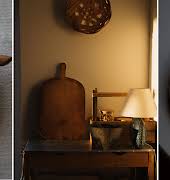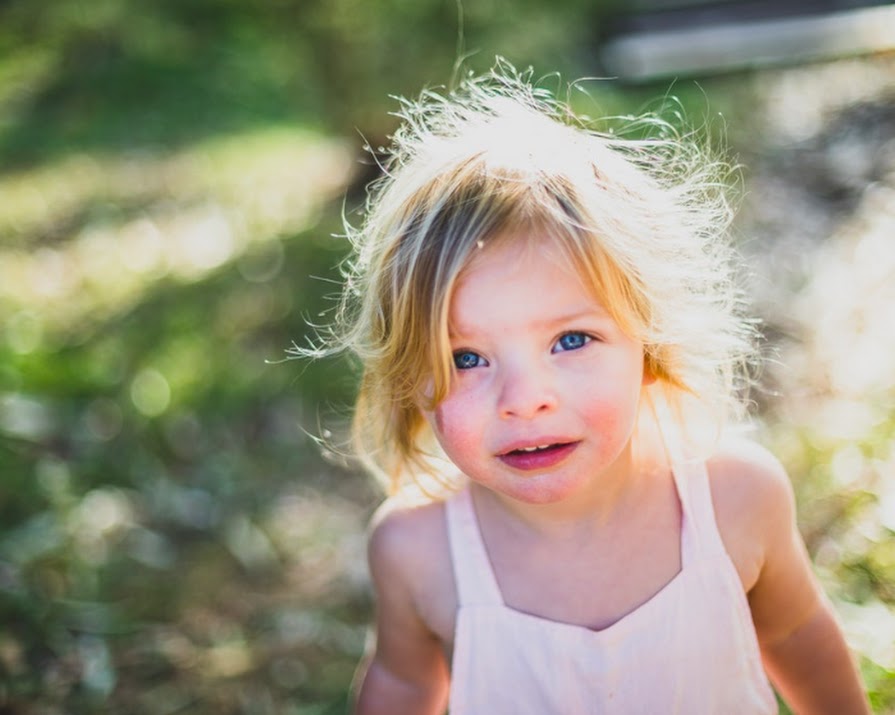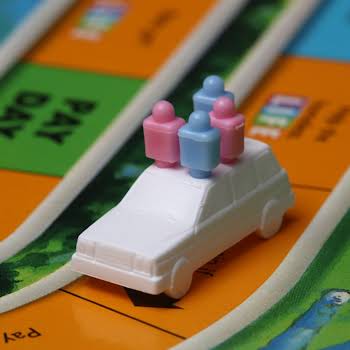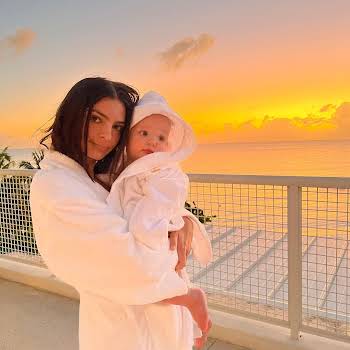
Being a peaceful parent means being peaceful with yourself. Amanda Cassidy decided to give it a whirl.
My life is many things – busy, loud, fun, frustrating, challenging, colourful, happy. What it definitely isn’t, is peaceful. That’s just something I resigned myself to when I became a mother. No more crop tops, I lamented wistfully. No more drinking directly from the wine bottle. No peace.
Because peace is incompatible with scraped knees and lost gumshields. There is no room for it during 2am inspections for monsters, or homework wars, or pea-pushing.
Related: I’m teaching my child ‘different is normal‘
Control
We all know that peace is an impossible concept while you are scraping dried Weetabix off the floor, or trying to wrestle a toddler out of the fancy bit of Dunnes, right?
Wrong, says Dr Laura Markham. This whiz decided to go and write a book called Peaceful Parent, Happy Kids. She’s a proponent of parenting with a huge dose of mindfulness and love. So far, so hooked. But this parenting method requires parents to look critically at their own desire for control and how it is affecting our parenting. Intrigued by anything that involves me thinking about me, I decided to give it a whirl.
I had faith in this beautiful vision of parenting as one of joy and cooperation instead of spilt juice and coagulation.

Non-aggression
Peaceful parenting comes with a whole lot of benefits, according to experts like Markham; “In a healthy parent-child relationship, the parent will very rarely have to use authoritarian methods, because the bond is strong enough that the child will naturally trust the parent. Peaceful parenting is more difficult if the parent lacks patience but the practice will build the virtue in both the parent and the child.
Training children with non-aggressive methods significantly reduces their temper and increases their negotiation skills.
The methods of peaceful parenting don’t use the child’s natural amygdala, a base of the brain, flight, freeze, or fight response. This actually increases their emotional stability, their long-term memory functions and ability to think critically.” This sounds solid and achievable, I thought, let’s do it.
Treat the source
The first part of Markham’s method is to focus on what causes the disruption to the peace that (should) reign. Are you, yourself, anxious? Did something trigger anger in your childhood? Are you grieving the loss of something in your life that makes you more likely to seek complete control? The idea is that if you are trying to control the uncontrollable (i.e. my three children) you are going to end up frustrated, angry and resentful. Ergo, no peace.
This was going to be a lot harder than I thought.

Stop, drop and breath
What I call ‘boldness’, Markham quaintly refers to as ‘behavioural adversity.’ She suggests approaching this behaviour with the Stop. Drop and Breath method. ‘Stop what you are doing, drop your agenda, and do some thoughtful breathing. Only then can you address your anxieties, bend down to their level, approach your child with empathy and look for a solution.
Day one, I am buzzed up, nearly looking for trouble to solve. The children are fighting over pieces of LEGO when I swoop in. I explain that I know how the eldest must feel when the youngest takes her masterpiece. That must really annoy you, I croon.
They look at me, puzzled by my Mary Poppins approach. Caught off guard, they agree, it is hard to share. We all decide that a good solution would be that we take turns and peace reigns. Yes, peace. This Dr Markham might be onto something.

Empathise
The empathy part is key. Peaceful parenting involves remembering that your child has been on the earth for 4 or 7 or 10 tender years. You are expecting them to act like a well-mannered adult. Yes, that is the destination, but we are confusing that with the journey.
Our kids are not little adults. They are not ‘acting out’ because they want to annoy us. (Although I’m sure my daughter walks a little more slowly on purpose when we are late for school.)
The fact is that we need to shrug off our learnt rationality and remember who were are dealing with here – children with limited perspective, no experience of the world and who are biologically primed to play and explore.
My most dramatic daughter falls and grazes her knee. To avoid the hysterics I know are coming, I whip her onto my knee. “That must feel awful,” I sympathise, instead of my usual, come on, you’ll be fine, run it off.
She nods sadly. “Will we stay here for a bit, you and I, until you feel better?” I offer. She snuggles in for long enough that I realise there won’t be many more of these moments left, I felt her pain and really allowed myself to stand in her red patent shoes for a bit.
I was starting to feel that peaceful parenting is actually mindful parenting and it was something I hadn’t realised was missing.
Related: ‘When you’re a mother, self-care is not a luxury but a necessity’
Love cup
The Peaceful Parenting movement even offers a checklist; Connect before you correct, reflect before we react, look for the reason behind our child’s behaviour, try to accept our child’s ‘big’ emotions with compassion and teach them how to move past it. They suggest taking responsibility for keeping our own ‘love cups’ full so we can pour our appreciation and acceptance into our child.
After a few days, there is definitely a difference in our household. It is calmer, I feel more in control (but not in a dictatorship way, more in a circus ringmaster way). The children seem to like the new, peaceful me and even my husband compliments me on my new virtue. My love cup spilleth over.
And then they broke me.
The combination of a bad night’s sleep, a school jumper that refused to be put on, no coffee, scribbles on the wall, a TV that they wouldn’t stop watching and a stubbed toe were the undoing of me. Mary Poppins died for a few loud moments. Stars were yanked off the reward chart (they may have been scrunched up and put into the bin)
Friday treats were banned forever and my peaceful parenting mask slipped right off. I wrote off day three and blamed myself for speed-reading chapter 6.
Perspective
Much of this is common sense. We know that if we sleep better we are going to have infinitely more patience. If we eat well, we will be healthier, if we shout less, we are going to be better parents. If we make time for ourselves, we will be able to give more to our children. Happy Mummy, happy kids. This isn’t really anything new.
What it is is an opportunity to remind ourselves of what we are doing – creating their inner voice, their decision-making dial and crafting their moral compass. Undoubtedly, that takes patience and tolerance and there is no harm remembering that from time to time. Our lives are busier than they have ever been, we are working and planning and pulling and dragging – trying to do our best but never feeling like we are measuring up.
I didn’t like the guilt factor that peaceful parenting places so neatly at parents feet. (You have to hold yourself accountable and ask yourself if you are responsible for cranking up the chaos by your own actions).
I do enough of that by myself, thank you very much. But what I did like was the reminder to step away from the hamster wheel of life with young children for a bit and get back to the crux of what job it is that we are doing and why. That is the steel that I need when my tolerance levels are waning.
We are not just keeping them safe, educating them for future endeavours or making sure they say ‘please’ and ‘thank you’, we are helping them to be the best version of themselves, so that they are gentle with themselves in the future, so that they have integrity and grit and pride.
Be their den
When my children play chasing, they often decide that I’m ‘den’. They race around, shrieking joyfully when I’m reading or making dinner or doing laundry. Suddenly one of them will hurl themselves at me and shout ‘I’m safe, I’m safe, Mummy is den!’ That is my motivation for being a more mindful parent. I always want to be their den, and I want that den to be as peaceful as possible.
After a week, some things have changed – I think a little more before I interact with my children, I’m learning to absorb all the little things and ask why they are doing what they are doing before I jump in.
I still lose my sh*t sometimes, but that is also simply just life. I told my kids that I expect them to row in too. We are all trying. Peace comes dropping slow.
Image via Pexels.com
Read more: Let’s stop pretending we are not parents in the workplace
Read more: Why we are all guilty of competitive parenting
Read more: If you find parenting easy you should keep it to yourself























